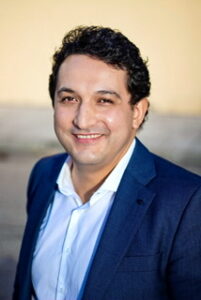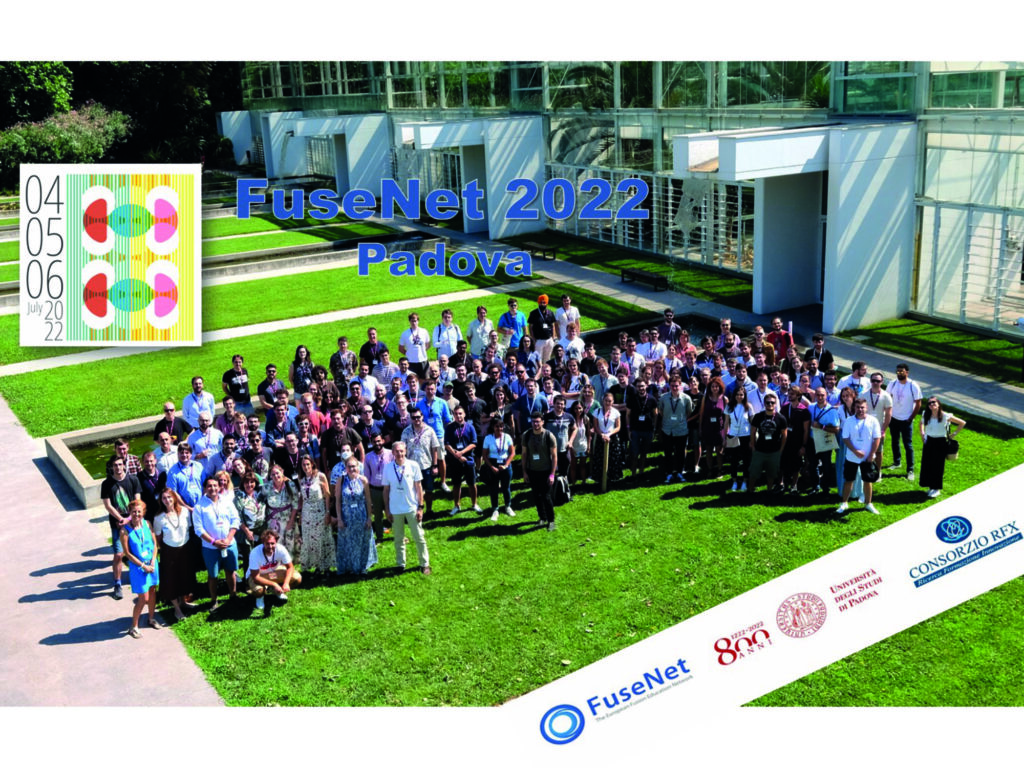The European Fusion Education Network, FuseNet, comprises around 65 members including universities, research centres, and companies across Europe. Backed by EUROfusion’s funding and strategic support, FuseNet promotes fusion energy through events, educational materials, and training opportunities, aiming to attract and motivate future generations.
What role does FuseNet play in the European fusion community?
We believe that everyone in Europe should have access to fusion education. Fusion is a multigenerational effort: the machines that are being planned and constructed now will be operated by the next generations of fusion scientists. Our mission is to enhance fusion education and outreach across different educational levels to grow and shape this future fusion workforce.

How did you get involved in fusion?
I got interested in nuclear energy as a bachelor student of physics in Colombia, so I moved to Italy to study energy engineering as a starting point. Fusion seemed like a wonderful topic to work on. It is of paramount importance to humanity; it requires a multidisciplinary approach and has a very international community—all big motivations for me to join. The combination led me to join the FUSION-EP master program and to do a PhD in fusion materials at CIEMAT in Spain.
What drives you in your role?
I got involved in FuseNet during my PhD as Chair of the Student Council, because I believe that education and training is a key element in the success of fusion as an energy source. The step to Executive Officer for FuseNet was only natural. Strengthening and inspiring the current and future fusion community is a very motivating job!
What is your approach with FuseNet?
Our main activity is supporting the mobility of European master students. We also develop activities on multiple levels of education. Mostly for higher education, but also for primary and secondary schools.
FuseNet provides financial support to Master students for fusion internships abroad and educational events, for workshops by FuseNet members on dedicated topics for master and PhD students, and for members to invite an international professor to lecture in a fusion course. We also have a one-day online event for Master students to learn about fusion and discover how they can join the research at different research centres and industry.
For PhD candidates, we have our annual PhD Event, a three-day live meeting where they present their research to their peers, attend presentations from high-level keynote speakers, go on technical visits and enjoy a social programme.

You mentioned activities for secondary schools; what does FuseNet organise for them?
We think you cannot start early enough to interest people in fusion. That is why we organise an annual online event for around 400 secondary school teachers. The event starts with a common part for everyone, then participants split into separate sessions by country to network with fusion researchers and fellow teachers from their own country. We get them interested through talks and virtual tours at leading fusion facilities, then we share our five classroom modules. These were originally released in English, but we now have translations into other languages thanks to voluntary work by teachers and fusion researchers!
For the youngest learners, we also created materials for primary school education together with the Native Scientists organisation. Our goal is not just to raise awareness about fusion, but also about the scientific method, sustainable development, and humanity’s ability to innovate and dream.

What are you looking forward to in the coming year?
There is a lot happening! We have events like our European Fusion Teacher Day on 11 October, the PhD Event from 3-5 September in Stuttgart, Germany, and the online Master Event on 21 November. This year, we are also inviting final-year bachelor students to join the Master Event!
Our main goal for the year is to increase our visibility; we want more students and educators to know about us. We’ll announce our master thesis prize winners this summer and join numerous public events alongside our partners. I look forward to promoting the association and discussing potential collaborations with other fusion stakeholders!
The European Fusion Education Network, FuseNet, empowers educators and students through educational development and mobility programs. European universities, research institutes and industry forge lasting bonds through our network.
FuseNet is an affiliated entity to EUROfusion, tasked to stimulate and coordinate education activities that support the European Research Roadmap to the Realisation of Fusion Energy. This collaboration results in funding schemes for Master students, networking activities for doctoral students, the development of educational materials, the organisation of events for younger educational levels, and the strengthening of relationships with industry.
